Best Sega Master System games of all time
20. Strider
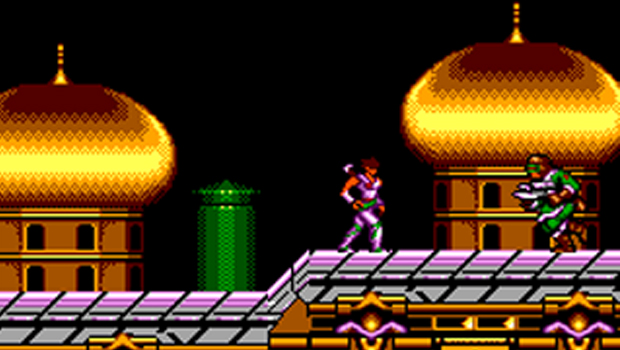
Capcom's acrobatic arcade platformer was a killer app of its day: a brightly colored, high-jumping flight of fancy whose coin-operated excesses struggled to fit through the door of home players' living rooms. Sega personally took on the task of converting the title, and the company's efforts on the Master System are to be commended.
While the sprites weren't as large as their Genesis equivalents, there's a truism that applies about the importance of size. Besides, the game's expansive sci-fi cityscapes were the true star, dwarfing cult hero Strider Hiryu whichever platform he was hosted on. Platformers were in ready supply on the SMS, but the comparatively human scale of Strider and adversaries give this one a realistic, even cinematic flair.
19. Streets of Rage 2
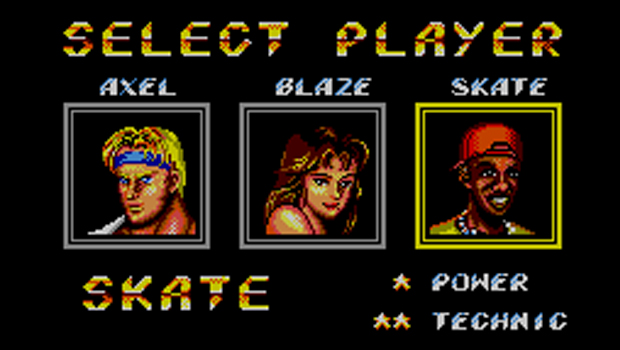
The Master System had already got its own version of Double Dragon, so its not as if owners of Sega's machine had ever been exempt from all the vigilante urban pacification that was so popular in the late '80s and early '90s. But it took this conversion of the company's own Genesis thrasher to show 8-bit players how the genre was done right.
Like the Master System versions of later Sonic titles, this is less a downscaling of the Genesis title than a whole new game in its own right; so while there are necessary cuts to the character roster and number of players supported, the game still offers the crunchiest, most hands-on 8-bit iteration of an IP that sadly fell off the radar with subsequent hardware generations.
18. F1
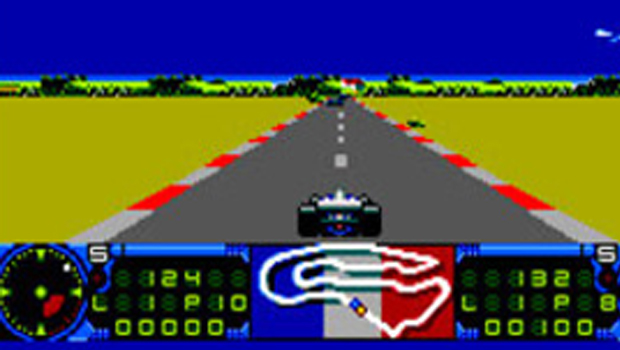
Master System owners eager to go as fast as possible were well served by F1, a downsized conversion of Domark's definitive Formula 1 sim. The graphics may not have been as lush or the sound as grunty, but the game still manages to convey a satisfying sense of high-speed, and tactically deep racing, with a fully-fledged tuning section for enthusiasts or an arcade mode for those who just wanted to get their foot on an accelerator.
Impressively, the game even managed a split-screen multiplayer mode in which two players could face off head-to-head across a roster of officially-licensed Formula One tracks.
17. Fantasy Zone 2: The Tears of Opa-Opa
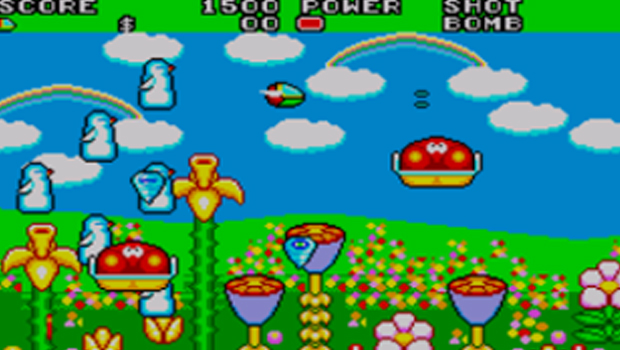
Fantasy Zone 2 was the work of artist, archeology scholar, and early Master System trailblazer Rieko Kodama, also known for her contribution to stablemates such as the Alex Kidd and Phantasy Star series. Kodama's shooter swaps laser death for floral prettification, with players commanding a miniature craft through a succession of candy-colored zones that feature networks of hidden warp gates to navigate.
Sign up to the GamesRadar+ Newsletter
Weekly digests, tales from the communities you love, and more
The SMS version was popular enough to spawn a largely unchanged arcade conversion, which in turn made it across the divide for NES players to sample Kodama-san's saccharine take on the genre.
16. Micro Machines
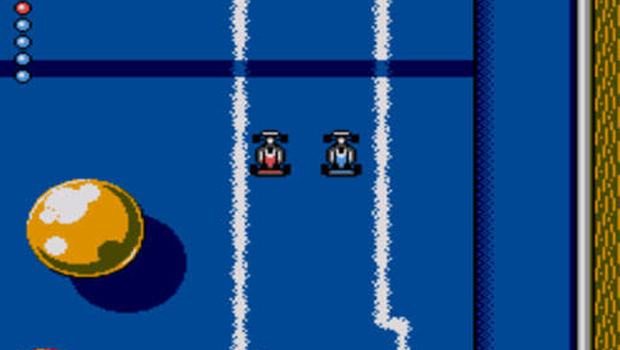
The Master System was initially an adequate - if never exemplary - host for racing titles. But by 1993, platforms such as the SNES, Genesis, and Amiga had evolved high-speed competition to a point that neither Sega's 8-bit platform nor Nintendo's competitor could reasonably hope to match. Enter Micro Machines, whose impact on the racing titles of the time cant be overlooked.
Taking a birds-eye perspective, Codemasters' racer took the strain off the hardware to focus on propelling you through a series of inventive courses; and by keeping the action to a single screen, the developer was able to implement an innovative multiplayer mode that for once felt just as comprehensively competitive as the single-player experience.
15. Wonder Boy in Monster World
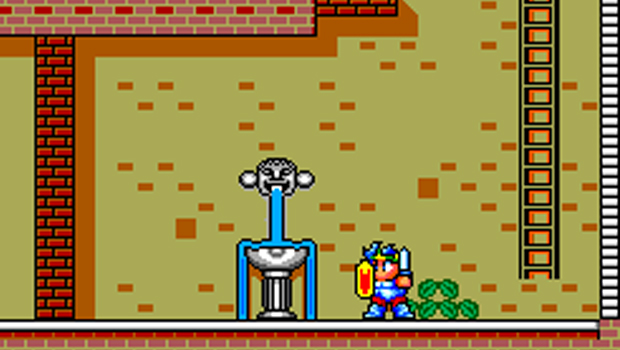
The original Wonder Boy put in a decent showing on Master System, no doubt helped by the low hardware demands of the simplistic original; but by the advent of this fifth instalment in the series (and third in the Monster World series of spin-offs), Sega had raised the bar more than somewhat.
Platform aficionados were pleasantly surprised by the titles depth, which built on the RPG elements of earlier Monster Worlds to offer the closest thing Master System players had to Nintendo's Zelda 2: The Adventure of Link. Side-on platforming and combat mixed with towns of NPCs to explore, and even a password-based save-game system to give your quest that epic scope.
14. Impossible Mission
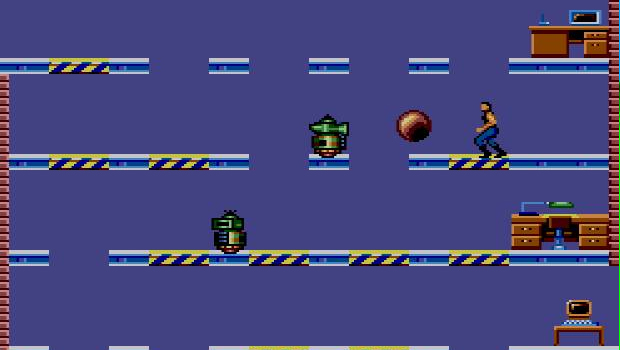
There are those who've had Impossible Missions trademark death-sounds burned into their eardrums from hours of unforgiving play, and then there are sane people. But the latter never experienced the thrill of inching their way through U.S. Gold's unforgiving network of high-tech hurdles.
Conceived years before Tom Cruise revived the Mission: Impossible brand, this off-licence imitator nevertheless employed similar themes of infiltration and espionage, with the added emphasis on bottomless-pit peril that was de rigeur in platformers of the day. With its origins on home computers like the C64 and Amiga, Impossible Missions particular flavor of single-screen platforming remains a tighter, more challenging proposition than many console-exclusive examples of the form.
13. Sonic the Hedgehog 2
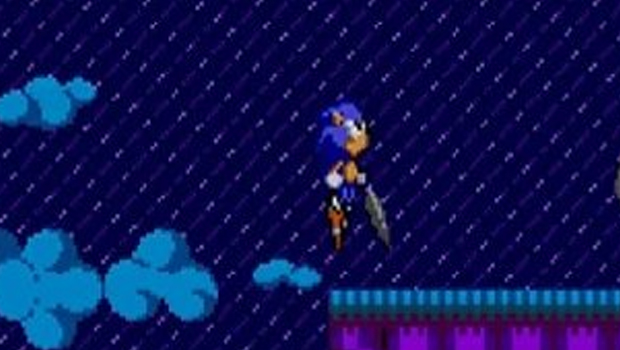
The original Master System Sonic played fast and loose with its parallels to the Genesis standard, but when it came time for the sequel, the SMS just flat-out came up with an entirely new game for you to explore. Tails may've had to keep his debut to the 16-bit sequel, but that just gave Sonic all the more space to expand into his own, tailor-made, genuinely high-speed outing.
Not only are the original's signature twists and turns finally on show, but new tricks and vehicles make this an adventure for Sonic to really throw himself into. Replay value is also increased with a whole new zone for chaos-emerald completists to strive for.
12. Ghouls 'n' Ghosts
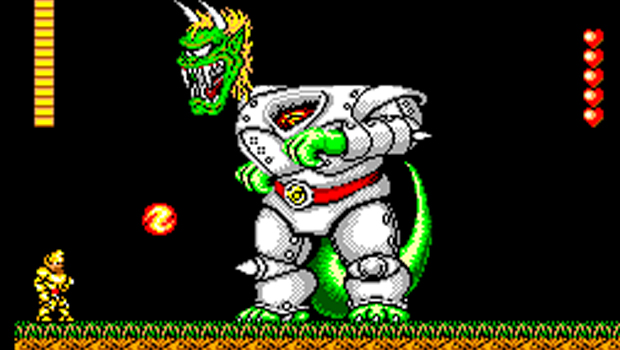
That catchy soundtrack. That merciless difficulty curve. Those iconic boxer shorts. The NES got the original instalment of Capcom's lance-chucking platform epic, but the sequel mainly stuck to gruntier consoles - except for putting in an appearance on the Master System, which rose to the challenge with a conversion to put many 16-bit platformers to shame.
Boasting a nimble, double-jumping Arthur, four-way fire for omnidirectional demon-eradication, and a unique RPG-style power-up system, the Master System's G&G is less a Genesis downscale and more its own special challenge altogether. New to the series? Give this one a whirl - but when you think you're almost done, don't go making plans for the rest of your day quite yet.
11. Deep Duck Trouble Starring Donald Duck
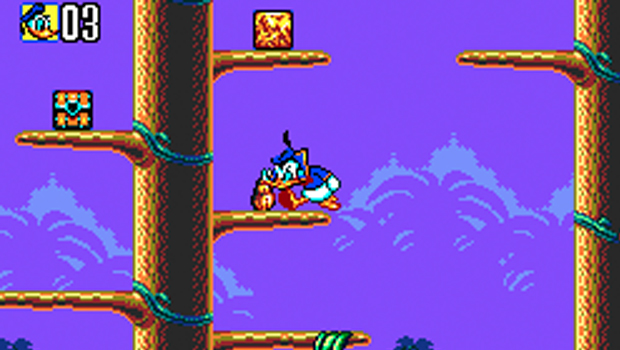
Uncle Scrooge has found a magical artifact on a remote island, which of course means he's been afflicted with a ridiculous curse, which of course means long-suffering Donald has to step up to the plate to return his miserly uncle to wellbeing. You'd think after performing so many favors for the worlds richest water-fowl our guy could at least afford some pants.
Regardless, here's a richly designed platformer from a top-of-their-game Sega and the company's frequent code-slingers Aspect. Play will be immediately familiar to Castle of Illusion veterans, who'll warm to the more pugnacious Donald's foe-kicking, chilli-consuming, hot-headed-rampage-going-on extravagances.
GamesRadar+ was first founded in 1999, and since then has been dedicated to delivering video game-related news, reviews, previews, features, and more. Since late 2014, the website has been the online home of Total Film, SFX, Edge, and PLAY magazines, with comics site Newsarama joining the fold in 2020. Our aim as the global GamesRadar Staff team is to take you closer to the games, movies, TV shows, and comics that you love. We want to upgrade your downtime, and help you make the most of your time, money, and skills. We always aim to entertain, inform, and inspire through our mix of content - which includes news, reviews, features, tips, buying guides, and videos.


